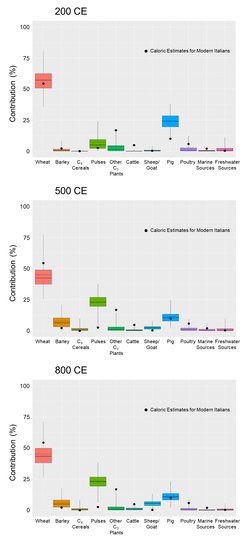A New Open Access Database for the Study of Medieval Europe
A new article in Nature’s Scientific Data presents the CIMA database (Compendium Isotoporum Medii Aevi). CIMA compiles more than 50,000 multi-isotope measurements together with supplemental historical information covering the entirety of the European Middle Ages.
CIMA was compiled by PhD student Carlo Cocozza with the support of a team of researchers at the Max Planck Institute for the Science of Human History, Ludwig Maximilian University of Munich, and the University of Bologna. The database is available at: https://www.doi.org/10.48493/s9nf-1q80.

Isotopic data promises to greatly enrich our knowledge of the history of the European Middle Ages, which is currently primarily based on the study of written documents. Isotopic measurements of human remains hold a wealth of information about the daily lives of medieval Europeans from across the socioeconomic spectrum, such as the diets or spatial movements of single individuals. Isotopic data can also be used to reconstruct past agricultural practices and the paleo-environmental conditions experienced by past populations.
In their publication, Cocozza and colleagues employ advanced mathematical methods to analyse compiled data and, in a series of case studies, present the first results illustrating CIMA’s research potential. These include the investigation of medieval animal management practices, the determination of the geographical origins of casualties from the Great Heathen (Scandinavian) Army winter camp at Repton (UK), and the study of European diets throughout the Middle Ages. The latter also looked into the impact that the collapse of the Roman Empire had on the diets of populations living in Rome. Bayesian modelling was used to quantify diets at different periods and a comparison was made with modern Italian diets (Fig. 1).
The open-access CIMA database will allow researchers to investigate the impacts of major historical developments on different aspects of human lifeways. With metadata characterising the political, religious, and social context of listed samples, CIMA enables researchers to address various historical questions and opens a window to the lives of groups often underrespresented in historical literature.
